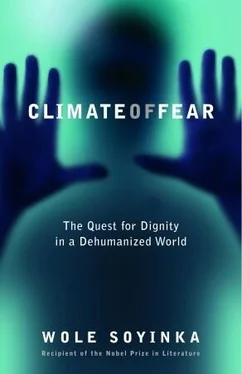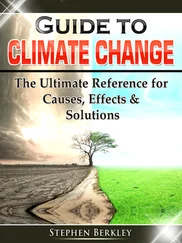We could utilize the animal kingdom as our entry point: I have listened sometimes to comparisons of household pets in terms of dignity — a cat, for instance, is usually accounted to be extremely dignified in comparison with a dog. The former is regarded thus because it is aloof, independent, and deliberate in its motions, while the dog exhibits traits of fawning, dependency, and easy excitation. These judgments are of course taken from what human beings have extracted from their own patterns of social conduct. Thus, a predator stalking through the jungle, a “Tyger! Tyger! burning bright,” in those luminous lines of William Blake, is often regarded — especially in National Geographic and by conservationists — as the very epitome of dignity, but watch it when it is devouring its prey or snarling at interlopers and I believe that all thought of dignity is forgotten. I think also that we would all agree that there is not much dignity to be found in the execution of one of those natural functions that even the most exalted, elegant, and “dignified” among us cannot avoid. Or indeed when we are indulging in that activity that guarantees the continuation of the species, but is mostly undertaken simply for the ecstasy of losing ourselves in another being.
Obviously we cannot remain within those parameters of poise, balance, rhythm, control, and so on, those attainments that are within the capability or trainability of the animal family, of which our species happens to be a part — a unique species whose social rituals and conduct have defined it further and further away from the rest of the larger family since the beginning of evolution. Today, we can hardly conceive of the individual outside the membership of a socialized group that constantly reinvents itself; we do not equate ourselves with some static organism under observation in a permanently controlled setting, or indeed with a “dignified” animal in a zoo. Thus, it is within human relationships that the essence of a human attribute, such as dignity, is most meaningfully sought, not within the self as some mystic endowment, but as a product of social interaction. It is futile to seek out evidence of dignity in the life of an anchorite communing in the wilderness with only birds, reptiles, and the elements for company. The essence of dignity that is unique to humanity is manifested through the relations of one human being to another, one human being to the family, clan, or community, in the relations between one collectivity and another, however defined, including race relationships.
Regarding this context of relationships, however, one common reductionism that also courts dismissal is that of conduct under suffering. Superficially, acceptance or resignation may appear to convey dignified bearing. Would we, however, place a victim of torture, or of rape, within this category? Definitely, what the very act of violation achieves is to rob the victim of that inherent, individualized, yet social property that answers to the name of “dignity.” Something is taken away with the act of violation, and that innate entitlement is not restored by one’s ability to fulfill social or theological expectations that belong to fortitude. There is no such being as a dignified slave, with or without the tarring and feathering that appears to have been appropriated from the Jim Crow culture of America for the contemporary humiliation of Irish youths in that territory of unrelenting anomie. When the being that is labeled “slave” acquires dignity, he has already ceased to be a slave.
The Yoruba have a saying: Iku ya j’esin lo. This translates literally as “Sooner death than indignity.” It is an expression that easily finds equivalents in numerous cultures, and captures the essence of self-worth, the sheer integrity of being that animates the human spirit, and the ascription of equal membership in the human community. This does not in any way belittle other human virtues — integrity, love, tenderness, graciousness, generosity, or indeed the spirit of self-sacrifice. Dignity, however, appears to give the most accessible meaning to human self-regarding. Its loss, in many cultures, Japan most famously, makes even death mandatory, exile coming as a second best.
To offer some intimation, at this stage, of our ultimate destination, let us remind ourselves that, as with individuals, so it is with communities and nations. Equally, to identify with a community beyond the self is to take upon oneself the triumphs and humiliations, the glories and mortifications, that the larger entity undergoes. The very development and maturation of self-consciousness involves the absorption into one’s self of sometimes intersecting rings of community or association — the alma mater, sports clubs, religious societies, the professional register, and so on. To non-sporting individuals, or the indifferent, nothing is more absurd than to watch a gaggle of football fans, irrepressible and rambunctious on their way into the stadium to cheer their favorite team, slink out of the same arena like drenched fowl and sink into the pit of depression after their team has not merely lost, but conceded a basket of goals. To remind them at that moment, or even months afterward, that it was only a game is to court pity or transferred violence for one’s failure to empathize with their sense of humiliation. Nothing will serve until their dignity is restored in a victorious rematch. Through a variety of habits, tastes, activities, social interactions, vanities, even hobbies, one acquires, or is inducted into, a new family, an extension of the self that may actually come to take precedence over the immediate family and community into which one is born and where one earns a living. I think of this sense of belonging as Community with a capital C — a community of thought, values, and sensibilities, one that, like the quasi-state, transcends boundaries and governments. Often Community is founded on shared historical experience that may be negative — such as political or economic bondage or social marginalization. Finally, let us not forget, or underestimate, the Community that is religion.
Dignity in the management of Community lies at the heart of our preoccupation. The global climate of fear owes much to the devaluation or denial of dignity in the intersection of Communities, most notably between the stronger and weaker ones, an avoidance of the recognition of this very entitlement, this craving, this inbred addiction, if you prefer, in chambers of negotiation, compromises, recitation of statistics and resolutions, including within the United Nations. It is easy enough to speak of, and even condemn, the building of concrete walls that turn whole peoples into prisoners in glorified camps, but somehow the expression of one critical, implicit denial is itself denied: that of dignity. Such a wall reaches beyond its physical terrain, and is experienced as a gesture of disdain against the Community of which such people form a part. If the Berlin Wall was held to reduce the inherent dignity of a people since it circumscribed their freedom, then a wall in Palestine cannot be viewed with the same regard as is elicited today by the Great Wall of China.
A Community is additionally humiliated through the mortification of its leader, or symbol, never mind what private reservations or criticisms it has of his person, a consideration that has surely contributed to the tendency of the Israeli government, backed in turn by the U.S. government, to top its record of disdain for their “vassals” with threats to expel an elected leader,
Yasser Arafat, from Palestine — that is, after progressively reducing his headquarters to rubble. Let me recall a significant phase in that conflict through an assessment that I wrote in November 2000, published in Encarta Africana. It ended on an image, utilizing nearly the exact words that I borrowed from a now largely forgotten incursion of the brawler Mike Tyson into Great Britain.
Читать дальше












